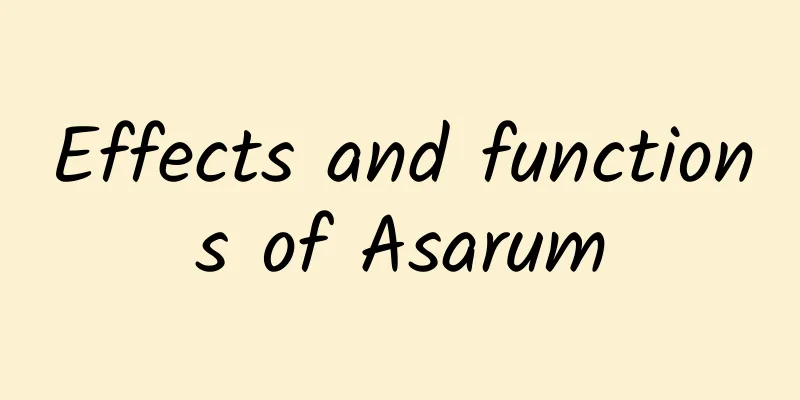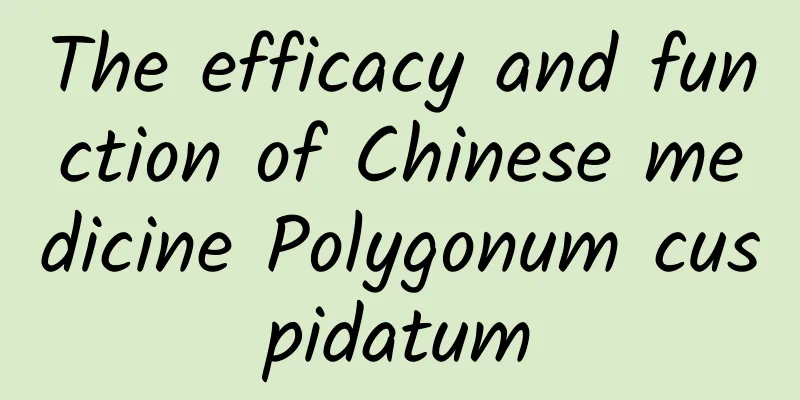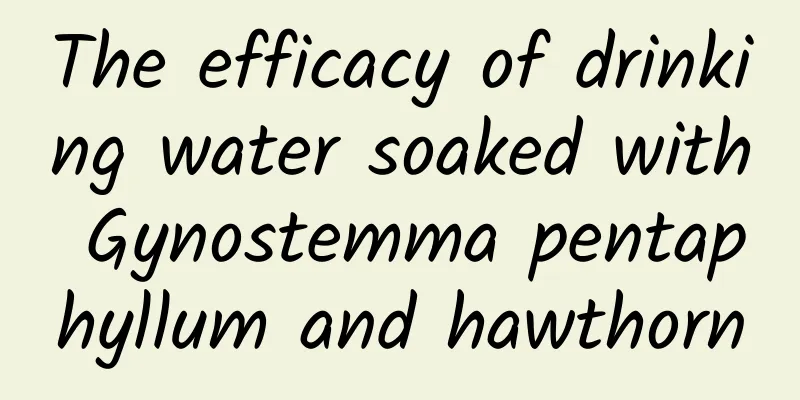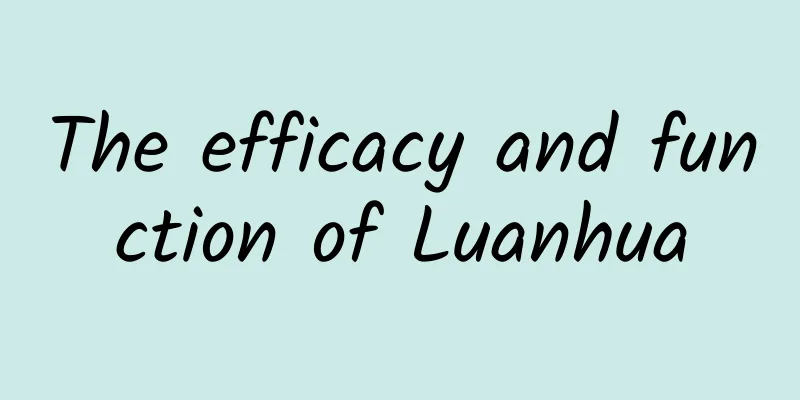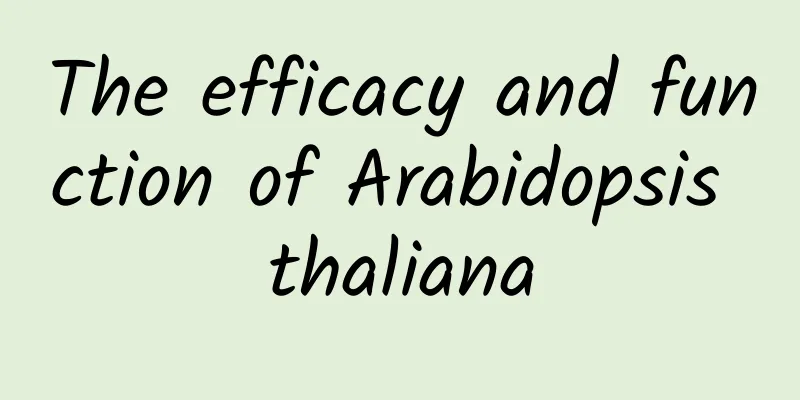Can babies eat Poria cocos?
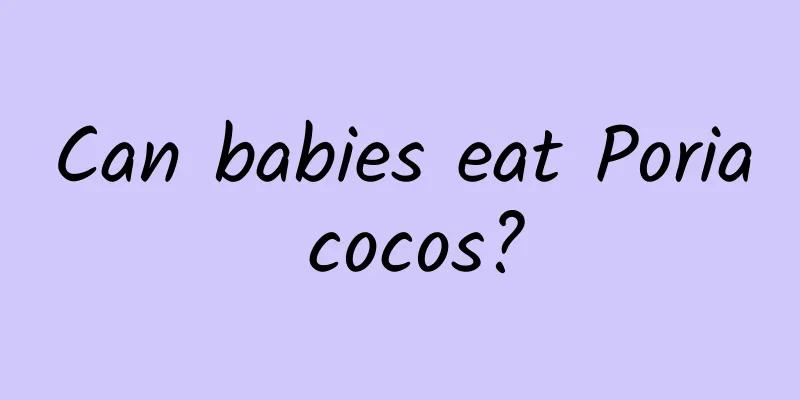
|
Poria cocos is a relatively common Chinese medicine. Chinese herbal medicine is much less harmful to people's health than Western medicine. Therefore, most people prefer to drink Chinese medicine to regulate their bodies. Poria cocos can strengthen the spleen and calm the mind. Poria cocos also contains a lot of starch, so it tastes very sweet. Many people like to use Poria cocos to make porridge. So can babies eat Poria cocos? You can eat it in moderation. Poria is mild in nature and sweet in taste. It has the effects of diuresis, tranquilizing the mind, strengthening the spleen and resolving phlegm. In life, people often use Poria cocos as a medicinal food. Poria cocos has no special smell and contains more starch, making it very suitable for making porridge. If children eat Poria cocos in moderation, it will not cause any harm to the body. On the contrary, it can treat some common childhood diseases. How to eat Poria cocos for children Poria cake Ingredients: Poria cocos, glutinous rice, white sugar practice: 1. Grind the Poria cocos into powder, then add glutinous rice and white sugar; 2. Add appropriate amount of water and stir. Finally, put the paste into the pan and make pancakes. White Poria Cocos Porridge Ingredients: White Poria powder, glutinous rice, salt, pepper, MSG practice: 1. Wash the polished rice and put it into the pot with the white poria powder to cook porridge; 2. After boiling over high heat, simmer over low heat until the rice is soft. Finally, add other seasonings and stir well. Poria cocos and chestnut porridge Ingredients: 15g Poria cocos, 25g chestnuts, 10 dates, 100g japonica rice. practice: 1. Add water and cook chestnuts, jujubes and rice first; 2. Grind the Poria cocos into powder, slowly add it when the rice is half cooked, stir well, and cook until the chestnuts are cooked through. You can add sugar to season. In what cases is it good for children to eat Poria cocos? Indigestion: Children's gastrointestinal function is not fully developed, and if they eat too much, they are prone to symptoms of pediatric stagnation. Poria has the effect of strengthening the spleen and stomach. The Pachycolic acid it contains can increase the secretion of gastric juice and promote food digestion. Poor appetite and loose stools. Deficiency of spleen and stomach qi and insufficient middle qi can cause symptoms of poor appetite and loose stools. If a child has symptoms of stomach pain, bloating, and poor appetite, it is very likely that the spleen and stomach qi is deficient. You should choose Chinese medicine that can invigorate qi and strengthen the spleen, harmonize the stomach and aid digestion to regulate the body. Poria cocos is a good choice. Poria cocos has a mild nature, has the effects of strengthening the spleen and stomach, and has no special Chinese medicine taste, so it is more suitable for children. |
<<: How to eat Poria cocos and what to avoid
Recommend
A baby born with only one nostril, and this "poison of the century" that was concealed for 50 years
In 1980, a worker at chemical giant DuPont gave b...
Who can't drink saffron?
In the field of traditional Chinese medicine, saf...
Scientists have given the newly discovered pangolin a temporary name of "mysterious", and you may never guess why...
Not long ago, the team led by Professor Yu Li fro...
The efficacy and function of bell
Bellflower can not only supplement the body's...
Why is he so cold-resistant? Because he is missing something...
Today we will talk about why some people are more...
Walnut wood price
We all know that eating 1-2 walnut kernels every ...
Hitwise: Ranking of Indian travel websites for the week ending November 19, 2011
Hitwise: As of the week of November 19, 2011, Mak...
Huoxiang Qingwei Tablets
Huoxiang Qingwei Tablets, I believe many people h...
Can myopia be reduced from 800 degrees to 100 degrees? The truth is different from what you think
Author: Jin Xin, Director of the Shouyang Myopia,...
What are the better kidney tonic medicines?
The body's physical functions decline with ag...
What can Gynostemma pentaphyllum be used externally to treat?
With the continuous improvement of living standar...
The efficacy and function of crown lip flower
Crowned lip flower is a kind of traditional Chine...
The efficacy and function of lotus leaves
Lotus leaf is a traditional Chinese medicinal mat...
What are the effects and functions of ground grass?
Many people have seen ground clove in their daily...
How to go from "white soil" to "oasis"? Let's see the "salty confession" of the earth
In ancient my country, people have already realiz...
